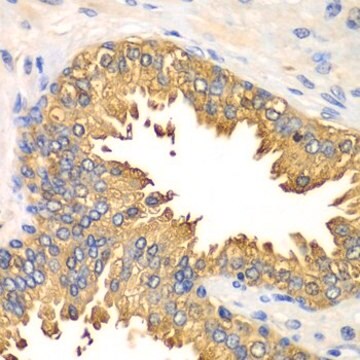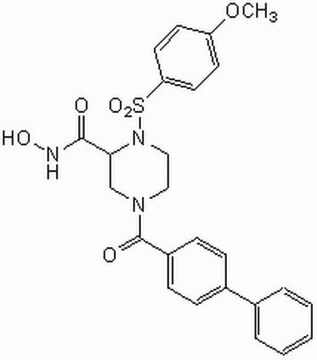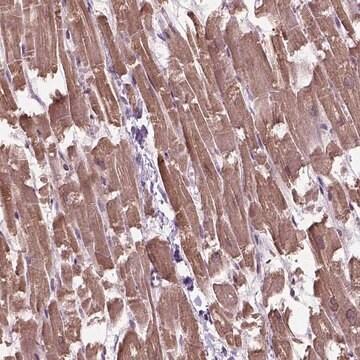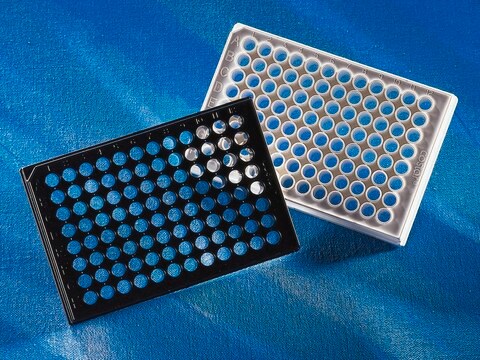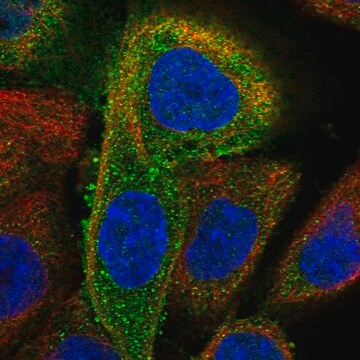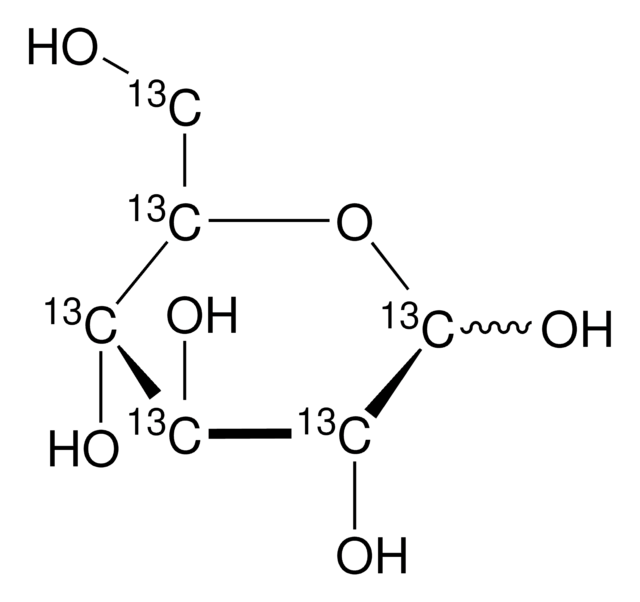MABF297
Anti-RIG-I, clone 1C3 Antibody
clone 1C3, from mouse
Synonyme(s) :
Probable ATP-dependent RNA helicase DDX58, DEAD box protein 58, RIG-I-like receptor 1, RLR-1, Retinoic acid-inducible gene 1 protein, RIG-1, Retinoic acid-inducible gene I protein, RIG-I
About This Item
Produits recommandés
Source biologique
mouse
Niveau de qualité
Forme d'anticorps
purified immunoglobulin
Type de produit anticorps
primary antibodies
Clone
1C3, monoclonal
Espèces réactives
human
Technique(s)
immunocytochemistry: suitable
immunoprecipitation (IP): suitable
western blot: suitable
Isotype
IgG1λ
Numéro d'accès NCBI
Numéro d'accès UniProt
Conditions d'expédition
wet ice
Modification post-traductionnelle de la cible
unmodified
Informations sur le gène
human ... DDX58(23586)
Description générale
Immunogène
Application
Immunoprecipitation Analysis: A representative lot immunoprecipitated RIG-1 in A-459 lung carcinoma cell lysate (Nistal-Villan, E., et al. (2010). J. Biol. Chem. 285:20252-20261).
Immunocytochemistry Analysis: A 1:500 dilution from a representative lot detected RIG-I in HeLa cells (Courtesy of Maite Sanchez).
Inflammation & Immunology
Immunoglobulins & Immunology
Qualité
Western Blotting Analysis: 1.0 µg/mL of this antibody detected RIG-1 in 10 µg of A-549 infected with SeV cell lysate.
Description de la cible
Forme physique
Stockage et stabilité
Autres remarques
Clause de non-responsabilité
Vous ne trouvez pas le bon produit ?
Essayez notre Outil de sélection de produits.
Code de la classe de stockage
12 - Non Combustible Liquids
Classe de danger pour l'eau (WGK)
WGK 1
Point d'éclair (°F)
Not applicable
Point d'éclair (°C)
Not applicable
Certificats d'analyse (COA)
Recherchez un Certificats d'analyse (COA) en saisissant le numéro de lot du produit. Les numéros de lot figurent sur l'étiquette du produit après les mots "Lot" ou "Batch".
Déjà en possession de ce produit ?
Retrouvez la documentation relative aux produits que vous avez récemment achetés dans la Bibliothèque de documents.
Notre équipe de scientifiques dispose d'une expérience dans tous les secteurs de la recherche, notamment en sciences de la vie, science des matériaux, synthèse chimique, chromatographie, analyse et dans de nombreux autres domaines..
Contacter notre Service technique